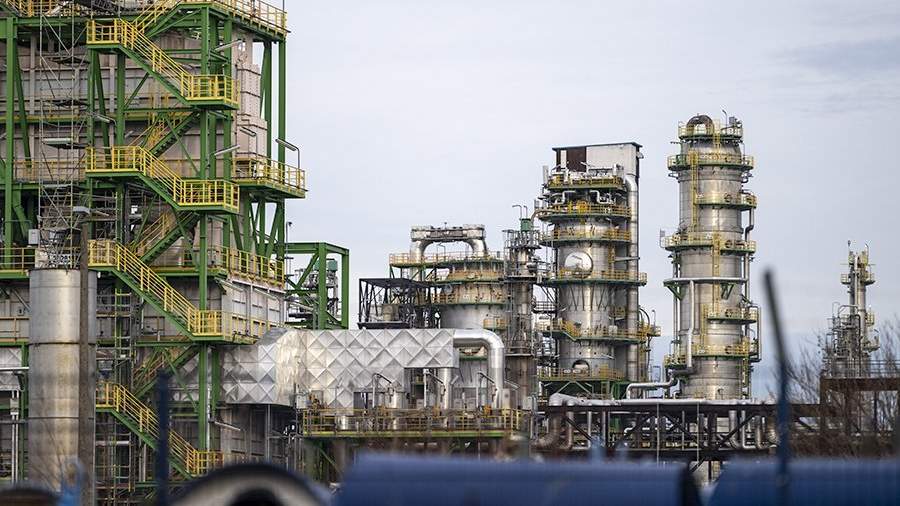
Dream distillates: anti-Russian sanctions have made Turkish oil refiners money
By Rhod Mackenzie
Turkey has made up to $2 billion in extra profits in 2023 by importing discounted oil and petroleum products from Russia. Despite Western sanctions, Ankara aims to increase its purchases of Russian energy resources.
Over the past year, Ankara has become the largest buyer of Russian energy resources in the Western Hemisphere. This is due to most European countries ceasing to import gas, oil and oil products from the Russia. Turkey is a member of NATO but maintains good relations with Moscow. However, this friendship has been tested on multiple occasions, including Turkey's role as the main mediator in the grain deal between Russia and Ukraine.
Since 2022, hydrocarbon trade between Moscow and Ankara has increased significantly, as Turkey has not joined Western sanctions on Russian oil, petroleum products, and gas.
In November 2023, Russian oil shipments to Turkey reached a historic high, exceeding 0.4 million barrels per day. This represents approximately 14% of Russia's seaborne oil exports in the past month, according to LSEG data (London Stock Exchange Group, a United Kingdom-based market research and financial information company) and Reuters calculations.
Turkey's Energy Ministry and local oil refiners STAR and Tupras did not respond to Reuters' requests for comment.
Based on LSEG data and traders' estimates, oil exports from Russia to Turkey are expected to exceed 10 million tons in 2023, with potential for further growth after the conclusion of a contract between Lukoil and the Azerbaijan State Oil Company (SOCAR) for the supply of raw materials to Turkey's largest refinery, STAR.
Turkey's additional source of income in 2023 was the significant growth in imports of Russian distillates. Over 11 months, Turkey imported 13 million tons of diesel, heating oil, and jet fuel from Russia, compared to 4.3 million tons in the same period of 2022. This increase in diesel fuel imports from Russia enabled Turkey to reduce purchases from other countries and increase its exports, according to industry sources.
According to LSEG, distillate exports from Turkey increased from 2.75 million tons to 6.03 million tons over the past 11 months.
Currently, the discount on low-sulfur diesel fuel from the Russian Federation with delivery to Turkish ports is about $25-$30 per ton compared to CIF MED quotes. However, in March-April of this year, it could reach up to $150 per ton.
According to traders and Reuters estimates, Turkish refiners received discounts on Russian oil ranging from $5 to $20 per barrel during the implementation of the European embargo and price ceiling.
By purchasing fuel and raw materials at discounted rates from the Russian Federation, Ankara was able to reduce the trade deficit and alleviate some of the pressure on the national currency, which had depreciated by 30% over the year.
It is worth noting that Turkey is not the only country benefiting from oil deals with Moscow, as reported by a London publication. Following the implementation of the EU embargo, Russia redirected its primary oil flow towards Asia. As a result, demand in India, a key market, became a decisive factor in pricing for the primary Russian export mixture.
Over the first nine months of this year, the South Asian giant saved approximately $2.7 billion on purchases of Russian oil. This volume was significantly larger than Turkey, amounting to up to 1.7 million barrels per day. Meanwhile, Turkish oil ports are much closer to export terminals in the western part of the Russian Federation. This proximity allows buyers to save money through discounts on Urals compared to alternative grades and lower freight costs compared to India.
According to sources and Reuters estimates, shipping Urals oil from Baltic ports to Turkey currently costs about a third less than to Indian ports. This can result in savings of up to $3 million per shipment.
Traders say that cheap Urals oil has helped Turkey increase the profitability of oil refining. Since the beginning of sanctions restrictions against Moscow, Turkish refineries have become one of the most profitable in the Mediterranean, according to Victor Katona, senior oil market analyst at Kpler consulting. Based on his estimates, Tupras, Turkey's largest oil refiner, had a gross margin of approximately $30 per barrel last year.
It is worth noting that Russia has increased its oil exports to alternative, mainly Asian, destinations in response to Western anti-Russian sanctions following the start of a special military operation in Ukraine. As a result, the European Union, as well as Great Britain and the United States, who were the largest importers of Russian oil, have decided to stop importing from the Russian Federation. On December 5, 2022, the EU implemented an embargo on maritime supplies of Russian oil. Additionally, a price ceiling of $60/barrel was put in place, above which companies from countries that have joined the sanctions are prohibited from purchasing oil. This ban also applies to the transportation of oil that is more expensive than $60/bbl and tanker insurance. Consequently, Russian oil producers have started redirecting exports to the east, where China and India have become the primary buyers. The two largest economies in Asia, excluding Japan, have not imposed sanctions against Russia, including a price ceiling.
